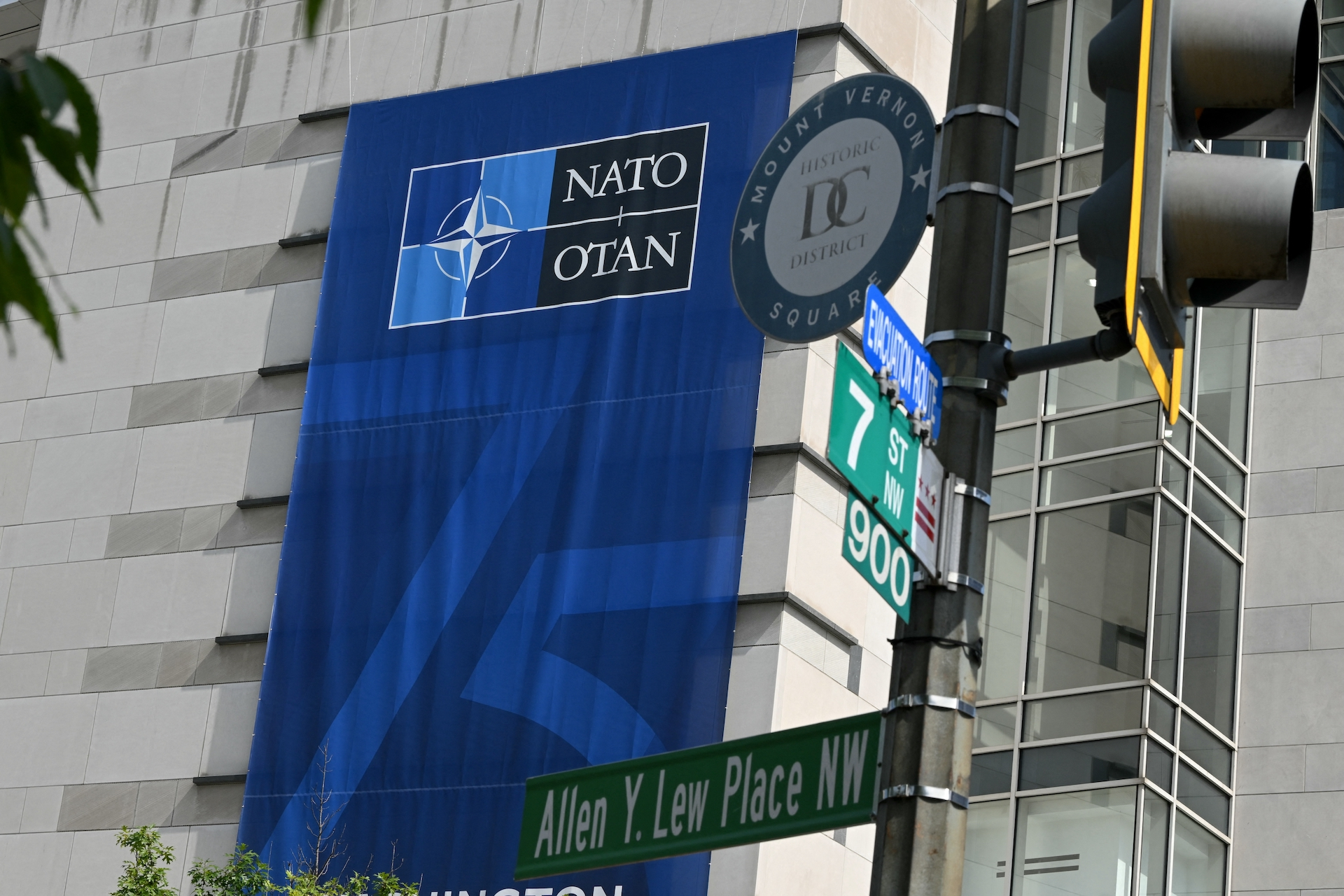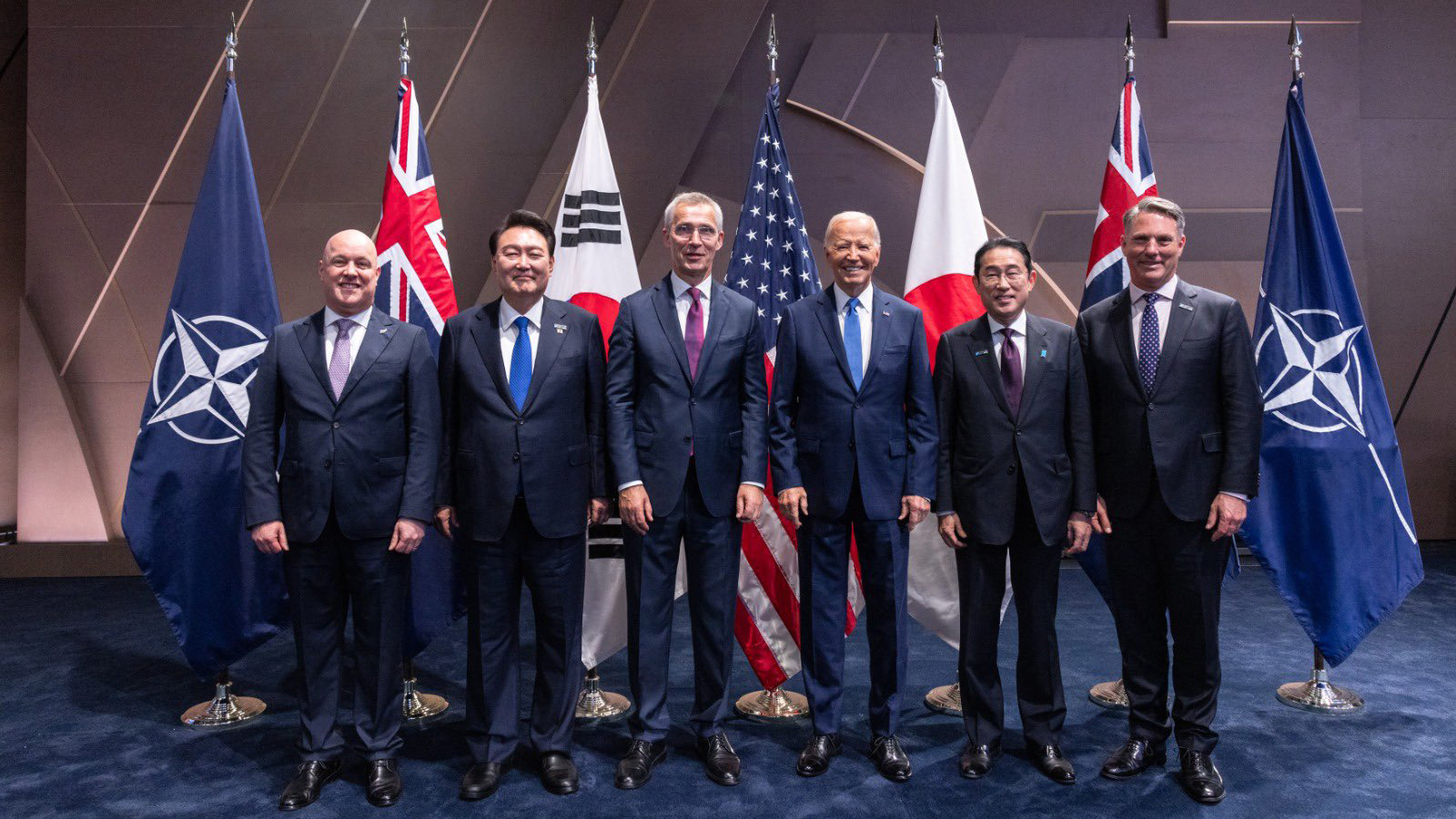Historical Context and Significance: Nato Summit Washington Dc

Nato summit washington dc – NATO, the North Atlantic Treaty Organization, is a military alliance established in the aftermath of World War II. It was founded in 1949 by the United States, Canada, and several Western European nations to counter the threat of Soviet expansionism and promote collective security in the North Atlantic region.
Evolution of NATO
Since its inception, NATO has undergone several expansions and transformations. In 1955, West Germany joined the alliance, followed by Greece and Turkey in 1952. During the Cold War, NATO played a pivotal role in deterring Soviet aggression and maintaining stability in Europe. After the fall of the Berlin Wall in 1989, NATO expanded eastward, incorporating former Warsaw Pact countries such as Poland, Hungary, and the Czech Republic.
Importance of NATO
NATO remains a cornerstone of global security, providing a collective defense mechanism for its member states. The alliance has also played a crucial role in peacekeeping and humanitarian operations, such as the intervention in Kosovo in 1999 and the deployment of troops to Afghanistan after 9/11.
Previous NATO Summits
NATO summits are held regularly to discuss issues related to security, defense, and international cooperation. Notable past summits include the 1999 Washington Summit, which led to the expansion of NATO eastward, and the 2014 Wales Summit, where the alliance adopted a new strategic concept in response to the changing security landscape.
The NATO summit in Washington DC concluded with a Biden press conference , where he addressed the media and answered questions about the outcomes of the summit. The summit focused on strengthening the alliance and addressing current security challenges, including the war in Ukraine.
President Biden emphasized the importance of unity and cooperation among NATO members in facing these challenges.
Agenda and Objectives

The NATO summit in Washington, DC, will focus on several key agenda items and objectives. These include:
- Reaffirming NATO’s commitment to collective defense and security.
- Discussing the evolving security landscape and geopolitical challenges, including the war in Ukraine and the rise of China.
- Strengthening NATO’s deterrence and defense capabilities.
- Promoting cooperation with partners and allies.
The summit is expected to produce several outcomes, including a new Strategic Concept, which will guide NATO’s policies and actions for the next decade. The summit is also expected to strengthen NATO’s unity and resolve in the face of growing challenges.
Defense and Security
The summit will focus on strengthening NATO’s defense and security capabilities. This will include discussing ways to improve the alliance’s ability to deter and respond to aggression, as well as to protect critical infrastructure and populations from emerging threats.
- Increasing defense spending.
- Investing in new technologies.
- Improving military readiness.
- Strengthening cyber defenses.
Geopolitical Challenges
The summit will also discuss the evolving geopolitical challenges facing NATO. These include the war in Ukraine, the rise of China, and the growing threat of terrorism.
- Providing support to Ukraine.
- Detering China’s aggression.
- Countering terrorism.
- Promoting stability in the Middle East and North Africa.
Cooperation with Partners and Allies, Nato summit washington dc
The summit will also focus on promoting cooperation with partners and allies. This will include discussing ways to strengthen NATO’s partnerships with countries in the Asia-Pacific region, the Middle East, and North Africa.
- Expanding NATO’s partnerships.
- Deepening cooperation with the European Union.
- Strengthening ties with the United States.
- Promoting global security.
Participants and Diplomacy
The NATO summit in Washington D.C. will bring together heads of state and government from the 30 member countries, as well as representatives from partner nations and international organizations.
The summit will provide an opportunity for leaders to discuss a wide range of issues, including the war in Ukraine, the security challenges posed by Russia and China, and the future of the alliance. It will also be an opportunity to reaffirm the unity and solidarity of the NATO alliance.
Heads of State and Government
- Joe Biden, President of the United States
- Jens Stoltenberg, Secretary General of NATO
- Olaf Scholz, Chancellor of Germany
- Emmanuel Macron, President of France
- Boris Johnson, Prime Minister of the United Kingdom
- Justin Trudeau, Prime Minister of Canada
- Mario Draghi, Prime Minister of Italy
- Pedro Sanchez, Prime Minister of Spain
- Andrzej Duda, President of Poland
- Volodymyr Zelenskyy, President of Ukraine
Diplomatic Dynamics and Relationships
The NATO summit will be an important opportunity for leaders to engage in bilateral and multilateral diplomacy. The summit will provide a platform for leaders to discuss issues of mutual concern and to build relationships.
The summit will also be an opportunity for leaders to reaffirm the unity and solidarity of the NATO alliance. The alliance has been under strain in recent years, but the war in Ukraine has brought members closer together.
Potential for Agreements, Partnerships, and Joint Declarations
The NATO summit could produce a number of agreements, partnerships, and joint declarations. These could include:
- A new strategic concept for the alliance
- A new defense and deterrence posture
- A new partnership with Ukraine
- A new joint declaration on climate change
These agreements, partnerships, and joint declarations would signal the alliance’s commitment to addressing the challenges of the 21st century.